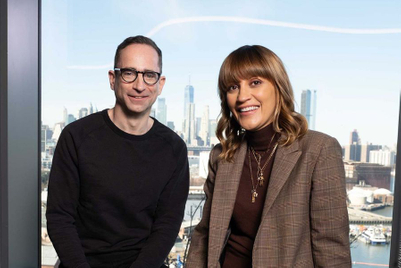
Interpublic Group is predicting a recovery in 2021, but how and when that will take shape is still unclear as the pandemic drags on.
The marketing services holding company reported an organic net revenue decline in Q4 of 5.4% year over year, to $2.28 billion, a slightly higher decrease than Q3’s 5.2% dip, due to Q4’s heavy reliance on project revenues. For the full year 2020, IPG’s organic net revenue decreased 4.8%.
Reduction in project spend played out internationally, where IPG’s organic revenues decreased 10.5% in Q4 and 8% for the year. In Europe, which makes up 8% of IPG’s total business, organic revenues declined 9.7% in the UK and 7.3% in continental Europe in Q4. In Asia, organic revenues were down 17.4% in Q4 year over year.
The US, which makes up 61% of IPG’s revenue, fared better, with organic net revenues down just 1.8% year over year in Q4. Revenues declined 2.9% in 2020.
IPG’s results compare to Publicis Groupe, which paid back salary reductions to 6,000 senior staffers after organic revenue declines improved to 3.9% in Q4.
“Last year, we did call out that the pandemic would have an impact on Q4 project spend,” said Philippe Krakowsky on his first earnings call as IPG’s CEO. “That played out to a much greater degree on the international side.”
However, IPG’s book of new business grew 5.6% year over year in Q4, “essentially lapping” where the company was last year after losing three major accounts, Krakowsky said. IPG has won business from T-Mobile, the NBA and Uber in the past few months.
While IPG “fully expects to return to positive growth over the course of the year,” Krakowsky said, there remains “significant uncertainty driven by macro conditions that are beyond any of our control.”
“The timing and magnitude of economic recovery clearly hinges on the resolution of the health crisis,” he added.
Healthcare, media and data FTW
While IPG’s events business continued to struggle in Q4, healthcare and media drove recovery in the quarter.
Acxiom, which has a “significantly larger” presence in the US, and is not as impacted by the cyclical nature of project work, played a major role in account wins and pitches this year, Krakowsky said.
Along with Matterkind and Kinesso, IPG’s programmatic and technology units drove holding company-level wins for a major auto client’s CRM business in North America and Asia. Data from Acxiom also helped IPG double its remit with a major CPG and win a major healthcare client in Q4.
“The common denominator in each of these examples is our ability to broaden the range of business issues that we can help clients address,” Krakowsky said. “Our goal is to become a more strategic partner, supporting client needs as they seek to derive more value from connecting marketing and technology to power their businesses.”
Overall, IPG’s integrated agency network business, which includes media, data, technology and creative agencies, decreased 3.8% in the quarter.
While Krakowsky declined to break out revenues for each segment, he said most of the growth was driven by media as clients began spending again in the back half of 2020. Creative agencies, however, “have posted growth” over the past few years, especially with clients in growing sectors such as healthcare.
“Healthcare was our strongest performer all year, and that skews very heavily to the US by the factor of two to one,” Krakowsky said.
Revenue at Dxtra, which houses IPG’s PR, sports marketing, events and experiential businesses, declined 15.1% in Q4 to $298.7 million, and 11.2% to $1.1 billion in 2020. The impact on IPG’s events business was stronger in international markets, where more pandemic restrictions are in place.
Looking to the future
IPG is reducing its real estate portfolio as it envisions a hybrid work environment in the future.
While the holding company incurred a $413.8 million charge for reducing its real estate footprint by 15% in 2020, it expects to see permanent savings of $160 million annually.
“Accounting for leases is neither intuitive nor linear,” said CFO Ellen Johnson, “so you will see some savings in 2021 but even more as some [of our offices] start to get subleased.”
Restructurings led to a 7.6% decrease in headcount this year.
Krakwosky also said IPG is continuing its commitment to diversity, equity and inclusion and sustainability under his leadership.
“As a business in which attracting top talent is vital to our success...an intentional approach to ESG is an important part of our strategy,” he said.


.jpg&h=334&w=500&q=100&v=20250320&c=1)



.png&h=334&w=500&q=100&v=20250320&c=1)
.png&h=334&w=500&q=100&v=20250320&c=1)

.png&h=334&w=500&q=100&v=20250320&c=1)

.png&h=334&w=500&q=100&v=20250320&c=1)

.png&h=268&w=401&q=100&v=20250320&c=1)




.png&h=268&w=401&q=100&v=20250320&c=1)
